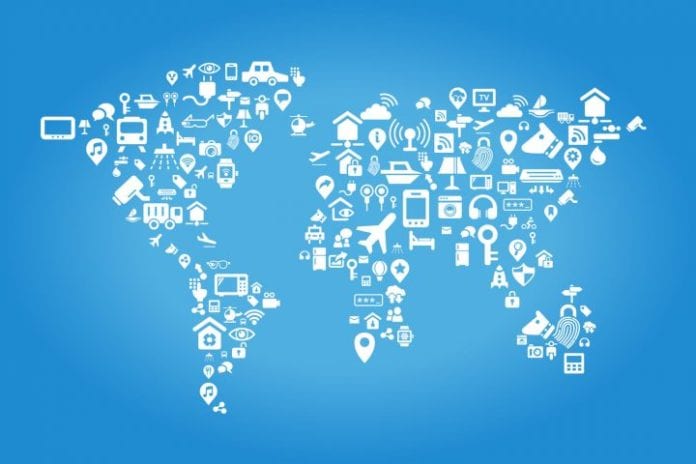China and the US are currently the two largest markets, study finds
Global cellular IoT connections – from 2G to 5G – reached almost 261 million at the end of 2015 and are forecasted to approach 1.22 billion in 2021, according to a recent study by Beecham Research.
The study revealed that Western Europe and North America have led the adoption of cellular machine-to-machine and “internet of things” connections, while the Asia-Pacific, headed-up by China, is now driving the market along with new players such as Brazil and Russia.
The study also highlights the strong growth of cellular IoT connections in the Arab states and Sub-Saharan Africa. In Israel and the Arab states, the boost in cellular IoT connections is driven by the development of smart city, energy and environmental IoT applications, while the focus in Africa is on remote payments as well as health care, water systems and agriculture.
The speed of adoption of cellular IoT connections is increasingly diverse among regions, and even among countries in the same region,” said Saverio Romeo, principal analyst at Beecham Research. “This is due to different stages of development, but also different regulatory regimes, government policies, cultures and the dynamics of regional and national economies.”
The U.S. market, which is now the second largest after China, continues to expand with major interest in areas such as smart homes, along with the industrial IoT. In Western Europe, the cellular IoT market is fueled by smart metering projects, mainly in countries such as the U.K. and Netherlands.
Huawei to start manufacturing smartphones in India next month
In other news, Chinese vendor Huawei announced it will start to manufacture smartphones in India in collaboration with Flex India next month.
The Flex manufacturing plant in Chennai will manufacture one of the Honor smartphones models. The plant will have the capacity to make 3 million units by the end of 2017. In addition, the Chinese company aims to strengthen its after-sales services in India with over 200 service centers, including more than 30 exclusive Huawei service centers across the country.
“We recently launched our world-class Global Service Center in Bengaluru and the start of manufacturing in India is an affirmation of our commitment to India and supports the ‘Make in India’ campaign. We are convinced about the growth potential and future of India, and we’ll keep looking for opportunities to increase our presence here,” Huawei India CEO Jay Chen said.

